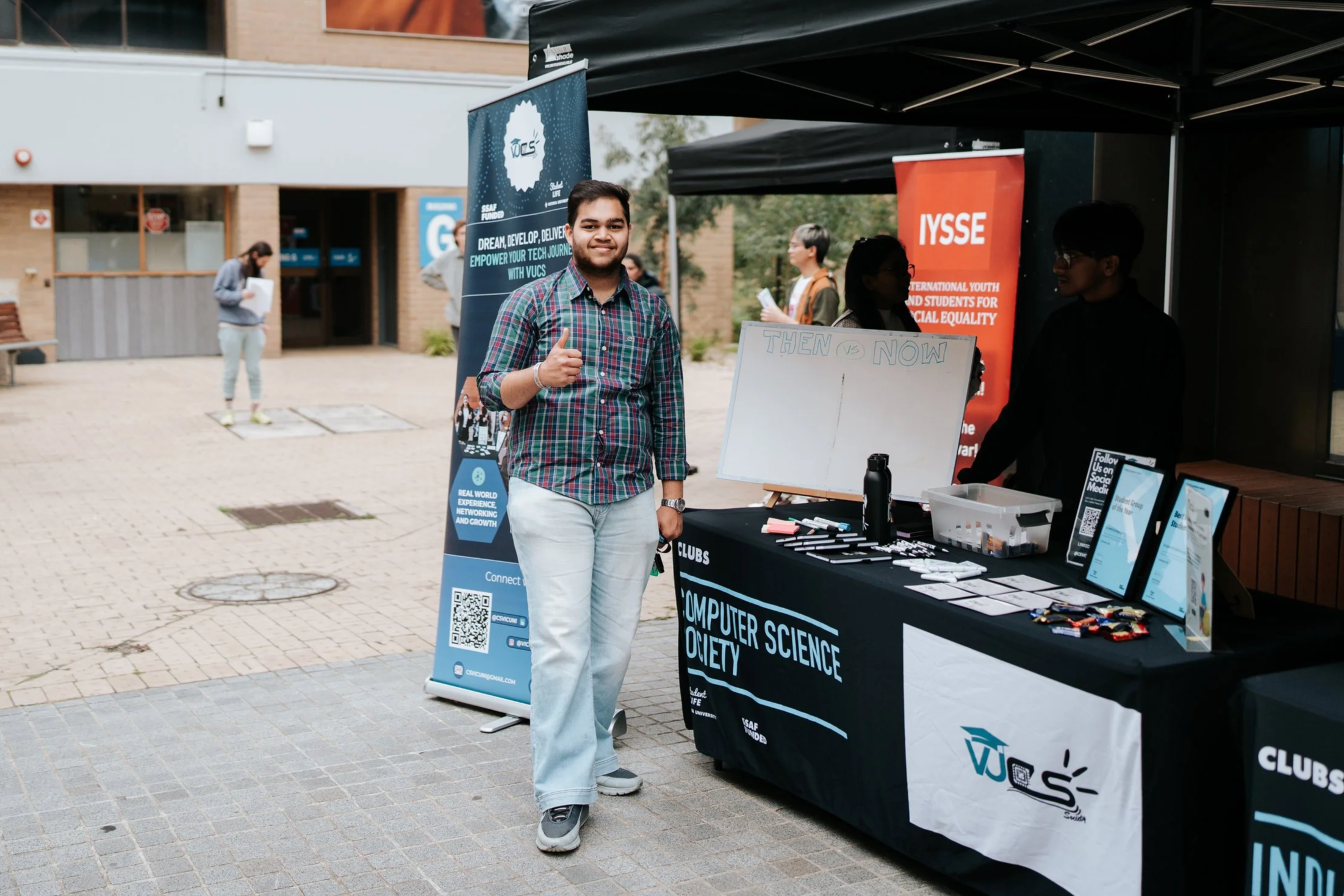Starting a Tech Society at Uni: What I Learned Along the Way
🌏The Beginning and Early Challenges
"Growing up in India, I always had a passion for technology and knew that I wanted to be a part of the rapidly evolving tech industry. I realized that to truly understand and contribute to this global field, I needed international exposure and experience.
My name is Pankaj, and what I'm about to share is my journey from being an 18-year-old international student to founding what became VU's second-largest student society. Thank you for taking the time to read my story.
That's what brought me to Australia to study IT. Victoria University was just my friend's recommendation - sometimes huge decisions are made with simple advice. As soon as I landed in Melbourne, I was super excited to start a new journey (here I was, an 18-year-old when I landed), but nothing seemed to be going well for the initial days. The Aussie accent, huh? Yeah, understanding the accent took me time to settle in, and transitioning from pen and paper-based education to all-digital-based education assessments, online quizzes, and computer-based exams was another hurdle for me. While I had always been comfortable with technology, adapting to an entirely new education system required patience and persistence.
🤝Finding My Place and Identifying the Gap
I joined Enactus Victoria University as a website developer, which became my gateway to understanding how things worked at the university. Working with diverse teams and helping with various projects taught me something valuable: meaningful impact comes from contributing to something larger than oneself. By the end of my first year, I noticed a gap. VU had passionate IT students, but we lacked dedicated tech events - workshops, industry talks, and networking opportunities that could bridge classroom learning with real-world skills. Then I had the idea, I needed some fellow students to join me with this initiative. It wasn't a grand business plan, just a simple "why don't we make this happen?" A close friend of mine suggested I use the "Computer Science" term. That conversation led to three months of hard work, planning, research, and working with professors to establish VUCS (Victoria University Computer Science Society) officially. We launched in April 2024, and I became the President.
🎯Building Something Students Wanted
My approach was straightforward - instead of assuming what would work, I asked students what they wanted. The answers were clear: practical skills, industry connections, and networking opportunities beyond traditional classroom learning. This insight became our foundation. Every event and initiative had to serve these core needs. Our first workshop focused on Figma, a design tool I'd recently learned through online tutorials. I led the session, teaching students how to design a basic website. The engagement was encouraging - students were asking questions, networking with each other, and genuinely excited about learning something new. That response confirmed we were on the right track. I quickly realized that industry professionals bring a different perspective than student-led sessions. So I started reaching out to tech professionals through LinkedIn, focusing on alumni and people with a history of supporting students. The approach required persistence - many messages went unanswered, but the connections that did respond made all the difference. When industry experts started leading our workshops, student engagement increased significantly.
🏅Real Impact
Within months, VUCS became the second-largest student association at VU. The real validation came at the annual awards ceremony when we won both "Student Group of the Year 2024" and "Best New Student Group of the Year 2024." But the impact extended beyond our club. After VUCS launched, student engagement across the university increased dramatically - the number of student associations grew significantly. Students began reaching out for advice on starting their initiatives, which showed we'd created something bigger than just another club. The biggest challenge was balancing leadership responsibilities with studies, part-time work, and the general pressures of being an international student. I worried about whether students would actually attend events and whether I could handle the role effectively. What helped was remembering that Melbourne is a city built on opportunity, and opportunity tends to reward those willing to take calculated risks.
🧠What Leadership Taught Me
Leading VUCS taught me that leadership isn't about having all the answers - it's about creating an environment where good ideas can emerge and flourish. The most successful initiatives we launched came from team members who felt heard and valued. My role evolved from trying to direct everything to facilitating collaboration and ensuring everyone had a voice in our direction. For aspiring leaders, I learned that you should focus on solving real problems, not creating impressive-looking events. Start small but be consistent in your efforts, and listen more than you speak - the best ideas often come from your team. Authentic outreach works better than generic networking, and always create space for others to contribute and shine. For international students specifically, remember that your different perspective is an asset, not a limitation. You don't need permission to identify and address gaps you see, and building something from scratch teaches skills no classroom can provide.
🚀Looking Forward
I'm now in my final year of a Bachelor of Information Technology while continuing to lead VUCS. This experience has significantly improved my communication skills, expanded my professional network, and most importantly, shown me that leadership develops through consistent action, not formal titles. That curious teenager who grew up passionate about technology is still here, just with a better understanding that you don't have to wait for opportunities - you can create them. To anyone with an idea they're hesitant to pursue: start with understanding the real problem you want to solve. Build from there, stay consistent, and remember that most meaningful change begins with someone simply deciding to act. The tech world continues to evolve at incredible speed. The difference now is knowing that you can help shape that future rather than just observe it.
By- Pankaj Bansal

